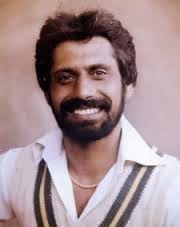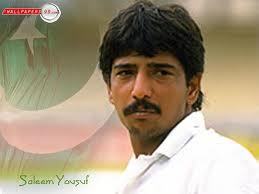Category West Indies
Babar Azam
Mohammad Babar Azam (born 15 October 1992) is a Pakistani cricketer. Azam captained the Pakistan Under-19 cricket team at the 2012 ICC Under-19 Cricket World Cup. Azam is a cousin of the three Akmal brothers in Pakistani cricket: Kamran, Umar and Adnan Akmal. In the 2016 West Indies series, Babar Azam broke the world record for the most runs scored in a three-match ODI series scoring 360 runs against West Indies in the 2016 series breaking the previous best of Quinton de Kock’s 342. He also became the third batsman from Pakistan and eight overall to score three consecutive centuries in 3 matches and the second to score 3 hundreds in a three match ODI series behind Quinton de Kock. He is also the only batsman to score his first three ODI hundreds in successive innings.
International career
He made his One Day International debut for Pakistan against Zimbabwe in Lahore on 31 May 2015. He made his Twenty20 International debut for Pakistan against England on 7 September 2016. On 5 October 2016 he became the third batsman for Pakistan to score hundreds in three successive ODI innings. Babar Azam is the cousin of Pakistani Cricket player Kamran Akmal, Adnan Akmal and Umar Akmal. He was also captain of Pakistan A team. Azam made three consecutive centuries against West Indies in 2016 and achieve a mile stone of becoming only third Pakistani who made three successive hundred in ODI,s. He also holds the record of making most runs(360) in 3 match ODI Series.
Wasim Hasan Raja
 Wasim Hasan Raja July 1952 – 23 August 2006), was a Pakistani cricketer who played in 57 Tests and 54 ODIs for the Pakistani national cricket team from 1973 to 1985. His younger brother, Rameez Raja, also represented Pakistan in Tests and ODIs, becoming captain of the national side. Another brother, Zaeem Raja, also played first-class cricket, as did his father, Raja Saleem Akhtar.
Wasim Hasan Raja July 1952 – 23 August 2006), was a Pakistani cricketer who played in 57 Tests and 54 ODIs for the Pakistani national cricket team from 1973 to 1985. His younger brother, Rameez Raja, also represented Pakistan in Tests and ODIs, becoming captain of the national side. Another brother, Zaeem Raja, also played first-class cricket, as did his father, Raja Saleem Akhtar. Early and personal life
Raja was born in Multan in the Punjab. His father was a high-ranking civil servant. Raja obtained a master’s degree in political science from Government College, Lahore. He was captain of the Pakistan Under-19 side. He settled in London after marrying an Englishwoman, Ann. He studied for a certificate in education from Durham University, and had a spell teaching geography, mathematics and physical education at Caterham School in Surrey. He was also a coach for the Pakistan Under-19 team, and International Cricket Council match referee in 15 Tests and 34 ODIs from 2002 to 2004. He died of a heart attack in Marlow, Buckinghamshire, England in August 2006 while playing cricket for the Surrey over-50s side. He is survived by his wife and his sons, Ali and Ahmad.
Career
During his playing career, Raja was known primarily as a dashing middle-order left-handed batsman, with a characteristically generous backlift and breathtaking stokeplay combining a keen eye with wristy execution. Raja also bowled flat wrist spin with his right hand that was good enough to take 51 wickets in Tests, with his scalps including Clive Lloyd, Roy Fredericks, Glenn Turner and Viv Richards. In all, he played in 250 first-class matches, scoring 11,434 runs at an average of 35.18, including 17 centuries, and taking 558 wickets at an average of 29.05.
His finest hour in Test cricket was the tour to the West Indies in 1976–77, when he topped the Pakistani batting averages with 517 runs at 57.4 and came second in the bowling averages with 7 wickets at 18.7, behind Majid Khan. He also scored 14 sixes in the Test series, setting a record that has been equalled 4 times but still remains the only instance away from home.[2] He top-scored in both innings of the drawn 1st Test in Barbados, to push West Indies to within one wicket of their first loss at Kensington Oval since 1935. In their second innings, Pakistan were reduced to 158–9 by Andy Roberts and Colin Croft, a lead of only 144 just over half-way through the fourth day, but a last-wicket stand of 133 with Wasim Bari set the West Indies a target of 306. At the close of the fifth day, West Indies were 55 runs adrift, on 251–9. West Indies won their next 12 matches at Bridgetown, until they were finally beaten by England in the 4th Test in 1994. He was a cricket teacher at Haslemere Preparatory School from 2004 to 2006.. There is a memorial plaque there in his honour. He is also remembered in the north east of England, playing for Durham CCC, before the county was awarded 1st class status.
Saleem Yousuf
Saleem Yousuf (born December 7, 1959) is a former Pakistani cricketer who played in 32 Tests and 86 ODIs from 1982 to 1990. He was a wicket keeper. He made his highest Test score of 91 not out against England at Edgbaston in 1987. One of his most memorable innings was in a match against the West Indies in the 1987 World Cup, which turned certain defeat into victory for Pakistan.
Post-retirement
Post-retirement
After retirement, he served on the Selection Committee for the Pakistan Cricket Board. Nowadays he is serving as Principal Appraiser in Pakistan Customs Service.
Syed Mujtaba Hussain Kirmani
Syed Mujtaba Hussain Kirmani (born 29 December 1949, in Madras) played cricket for India and Karnataka as a wicket-keeper. –1982 He started off as an understudy to Farokh Engineer in the tours of England in 1971 and 1974 and to the 1975 Cricket World Cup. Kirmani made his debut against New Zealand and in his second Test, equalled the world record of six victims in an innings. He followed this with an atrocious series in West Indies where he missed numerous chances and considerably contributed to Vivian Richards scoring hundreds in three consecutive Tests. When New Zealand toured India the next year, he topped the batting averages with 65.33, and scored 305 runs in the tour of Australia. He did not have a very good time behind the stumps against Pakistan and West Indies in 1978–79.
He was dropped in favour of Bharath Reddy for the 1979 Cricket World Cup and the subsequent series against England. Sunil Gavaskar was also sacked as the captain. Though Kirmani was dropped ostensibly for performance, there was a rumour that the real reason was that both he and Gavaskar had been approached by the organisers of the Kerry Packer‘s World Series Cricket. Back in the team for the series against Australia in 1979–80, he scored a hundred as a nightwatchman in Bombay. His innings of 101* in five hours nearly lasted out the day. He had 17 catches and two stumpings against Pakistan in the same season and it equalled Naren Tamhane‘s Indian record for a single series. Against England in 1981–82, he did not concede a single bye in three consecutive Tests while 1964 runs were scored.
1983 World Cup
Kirmani won the award for the best wicket keeper in the 1983 Cricket World Cup, his highlight of which was the catch of Faoud Bacchus that he took in the final against the West Indies. In the first round match against Zimbabwe, he equalled the then record by effecting three catches and two stumpings. Against West Indies at home, he partnered Sunil Gavaskar – who scored 236* – in a record stand of 143* for the ninth wicket in the Madras Test. Kirmani was a lower order reliable batsman and another example is the unbroken 126 for ninth wicket with Kapil Dev against Zimbabwe in the 1983 World Cup with Kirmani contributing 26 and that partnership proved critical in India being able to continue their run in the tournament.
1984–1986
At Bombay the next year, he scored his second hundred in Tests making 102 and adding 235 with Ravi Shastri, still an Indian record for the seventh wicket. In the Madras Test in the same series, he missed some crucial catches which contributed to an Indian defeat. He was dropped at the end of that series in favour of Sadanand Viswanath. Kirmani made a comeback in the Australian tour of 1985–86, where he fared reasonably well. He had just taken an outstanding catch to dismiss Allan Border in a World Series Cup match, when he hurt his leg badly. He was forced to sit out of the remaining matches of the tournament and that effectively ended his international career. India went for younger keepers like Kiran More and Chandrakant Pandit and despite trying hard, Kirmani was never able to regain his place.
Domestic career
Later in his career he played for Railways in domestic cricket for a season, after which he returned to his former team, Karnataka.
In movies
Kirmani played the role of an underworld character in the movie Kabhi Ajnabhi The, which also featured his contemporary Sandip Patil. One of his distinguishing characteristics was his clean shaven head. He served as the chairman of the selection committee for India in the early 2000s. He also plays a cameo role in an upcoming Malayalam film entitled Mazhavillinattam Vare. He will be playing himself in the film which is about a young Pakistani cricketer’s life-changing journey.[2]
Awards
-
He was awarded the Padma Sri in 1982.











